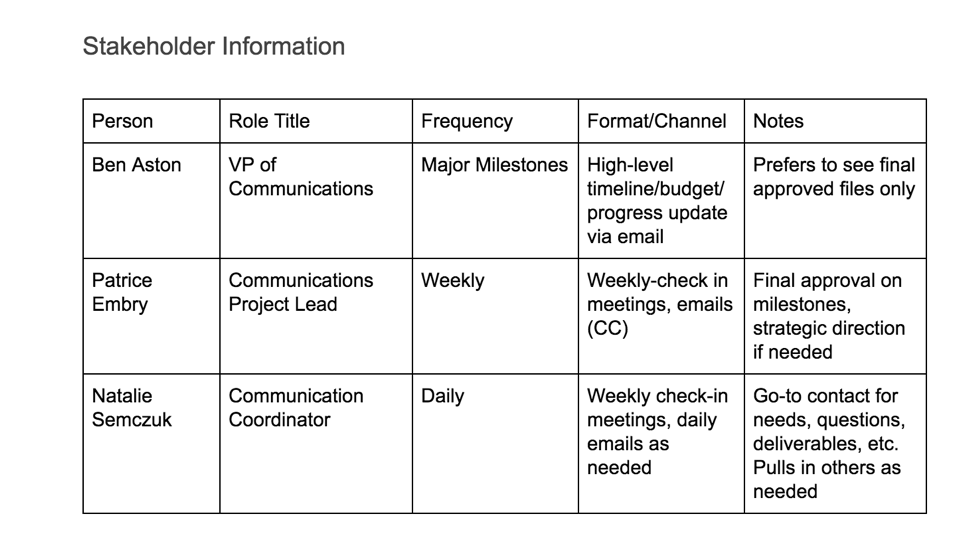How to Keep Your Marketing Teams Motivated

How to Keep Your Marketing Teams Motivated
Contributed ContentFactors such as unexpected project delays, gloomy weather, repetitive tasks, budget limitations, environmental distractions, and the rollercoaster of personal life events can all contribute to a motivational flatline.
Motivation waxes and wanes, even for the most driven of us.
A good leader or manager, however, should always be prepared to jumpstart their team’s spirit and get them back on track.
Unfortunately, there is no single recipe for success. That’s why you need a dynamic list of ideas to pull from when your marketing team’s motivation dips.
# Ways to Keep Your Marketing Teams Motivated
-
Communicate often
-
Give them tools to make daily tasks easier
-
Make your objectives and expectations clear
-
Break tasks into smaller chunks
-
Make things fun
-
Leverage praise and constructive criticism
-
Surround yourself with inspiring people
-
Offer chances for development and growth
-
Indulge passion projects
Communicate Well and Often
As a leader, your job is to ensure that your marketing team is in constant communication — not just with you but with one another also.
You can:
- Organize weekly or daily check-ins
- Ask questions about tasks and progress
- Brainstorm new ideas together
Everyone has a communication system that works for them, but whatever you use, you should have a concrete and specific plan in place.
For example, a project communication plan a project manager might use should include stakeholder information such as:
- Individuals responsible for communicating specific high- and low-level updates
- How often C-suite executives will communicate these updates
- How often C-suite executives want to be updated (e.g., approved files only, everyday questions, etc)

Project managers can also improve their communication by scheduling communication time into their calendar or designating a time to hold a regular feedback session as part of their team’s routine.
If one teammate keeps coming to the table with new ideas and results, it may coax the rest of the team to step it up a notch; just make sure there’s time (and budget) set aside for this type of communication and idea-sharing.
Remember, your goal is to keep people accountable for their actions (or inactions) and make sure they have the information they need at the right times.
Arm Them With the Right Tools
It can be messy work trying to effectively manage all the moving pieces of your many marketing projects. Creative, technical, and administrative aspects all need to align to produce a polished product.
Motivation can take a hit when your marketing team feels directionless or disorganized. Make sure your team is supplied with all the tools they need to do a good job.
For example, make sure your team has access to:
- social media management tools
- data analysis tools
- the best marketing project management software
- tablets or laptops
- dynamic workstations
If your marketing team feels supported and prepared, motivation will climb.
Make Your Objectives Clear
Sometimes, a lack of motivation is a symptom of a lack of direction.
You can only be motivated to achieve something when you know what that “something” is, so make sure you take the time to write proper company goals and project objectives.
The infographic below, from an article about setting project objectives using the S.M.A.R.T. framework, gives some guidelines and examples for setting clear, measurable goals that will guide your teams.

Once you’ve set your goals, make them visual. Make lists, charts, and other tactile representations of where you want to be and how you want to get there.
Humans are visual creatures, and your marketing team is no exception.
Here are some ideas for making goals visual:
- Put your expected result at the top of a “goal thermometer” (you know, the ones fundraisers use to track donations), and fill it in as you progress. Your team will be reminded of their endgame every time they see it and will be encouraged by seeing their hard work manifested.
- Use a wall of your office to make a “wins” board where team members can stick post-it notes with their achievements, big and small.
- Have an extra monitor laying around. Use it to display a real-time dashboard so your team can see current stats and refer to it as they work throughout the day.
- Adopt a company mantra or mission statement to help your teams keep the vision at the front of their mind by making it into art on the wall.
By helping your marketing team visualize the company’s goals, you can give them something concrete to work towards.
Break Tasks Into Smaller Chunks
Your marketing team probably has several large, big-picture goals they are chasing.
The finish line may seem so far off that your team loses motivation mid-sprint.
Try breaking each big job into a list of smaller tasks. Checklists can be very motivating, as your team will be able to see the progress they are making each day.
It’s sort of like giving your team a breadcrumb path to follow. Each crumb lures them towards the next goalpost, and the next, and the next—until the project is finished.
Invest in PPM software if you need help staying organized and on task.
Try Making Things Fun
Fun work? It’s not as much of an oxymoron as you may think. There are parts of every job that can be made fun—and if your marketing team is lacking motivation, this might be just what they need to spice things up.
Friendly competition between employees or teams can be a way to introduce some fun into a daunting project. Use a board to monitor each team’s progress, let them choose “team names” and colors, and channel the bombastic energy of a sporting event.
Or, offer rewards for high achievers, like an “employee of the week” bonus gift or a pizza party for the marketing team with the best conversions. When internal motivation doesn’t work (“I want to do this for my own pride and experience”) then external motivation (“I want that pizza party!”) can help out.
Leverage Praise and Constructive Criticism
Provide encouraging and productive feedback to your team intermittently. Offer compliments when deserved and constructive criticism when needed. You have to strike a good balance where you neither become a helicopter boss nor an absentee one.
Feedback helps keep people on their toes when dished out appropriately. Learn how to phrase compliments that encourages repetition, like: “Your numbers were double those of last week, can you give the rest of the team a pep talk with some ideas to improve?”
You can also phrase criticism in a way that lifts your team up, instead of beats them down: “I noticed you missed your deadline last week, can I help you re-organize some priorities for future projects?”
Motivation comes not from a blanket observation of competence, but a framework of: Let’s all address together what works and what doesn’t.
Surround Yourself With Inspiring People
Motivation starts by hiring a team with good energy. If there is a naysayer in the group, there’s a chance that they will bring the whole team down with their doom and gloom.
Need some new energy? Bring in a specialized consultant or contractor to infuse the room with renewed vigor.
Have a teammate that is particularly charismatic? Allow them to take on more leadership roles in the group so that their positivity can become infectious. Share articles about innovators in your field to inspire your marketing team. Leave reading material in the lunchroom by authors with something exciting to say about your industry.
There are plenty of ways to motivate your marketing team by inspiring by what other people are doing around them, in the immediate workspace and society beyond.
Offer Chances for Development and Growth
You can keep your marketing team’s mind fit by offering opportunities to hone old skills and develop new ones.
Don’t let your marketing team become stagnant in their duties and experience.
Organize online courses, guest lectures, and other forms of training to keep your marketing team from feeling too routine or stagnant in their work. There are plenty of free online courses, like Google Academy, and also paid ones that offer business plans, like LinkedIn Learning.
Indulge Passion Projects
Google gives their teams 20% of their workweek (aka one full day) to tinker with wild ideas and passion projects. Why? It’s invigorating to switch gears and chase pipe dreams.
This technique not only boosts motivation by letting employees choose what to focus on but it can result in surprising twists and turns in innovation, as well. Adopting the philosophy of the 20% rule has enabled the engineers at Google to develop a number of products including Froogle, Google News, Google Finance, Orkut, and GTalk.
It’s brain-break-meets-brainstorm and a great way to motivate your team by fostering creativity and experimentation.
Know What Drives Your Marketing Team
Everyone has it in them to be motivated, but sometimes, people just need a bit of a push in the right direction when things get tough.
Marketing teams may suffer from burnout or frustration, as the nature of their work is so fast-paced and ever-changing. Every good manager should have a “How To” motivational plan in the wings.
Even the best teams need a bit of a boost.
